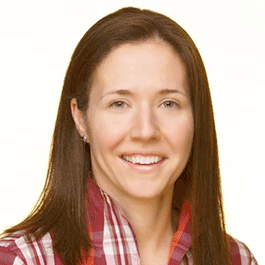Farley Welcomes New Faculty
The Farley Center for Entrepreneurship and Innovation hired a full-time faculty member and four adjunct faculty members as it continues to expand entrepreneurship education for Northwestern students.
“Given our Center’s mission, it is important for us to hire faculty with a deep and current understanding of entrepreneurship,” said Hayes Ferguson, director of the Farley Center. “I’m delighted to welcome to Farley these terrific practitioners whose experience as innovators will be invaluable to our students.
Full-Time Faculty
 Eduardo Acuna
Eduardo Acuna
Clinical Associate Professor
Classes Taught: NUvention: Medical; Entrepreneurial Sales and Marketing; Principles of Entrepreneurship; and Startup Launch
Read Acuna’s bio
Get to know Acuna
Q: What are some of the most important skills entrepreneurs should have today?
A: Entrepreneurs should be curious, open-minded and humble, team-players, and resilient.
Constantly asking “why or why not?” leads to deep understanding and helps us steer clear of unconscious bias and accepting the status quo.
Entrepreneurship is an iterative process. It almost never begins with a clear definition of the exact problem to be solved or the best solution to the problem. Being open-minded and humble allows us to let go of preconceptions, imperfect solutions, and technologies we love in favor of core problems, better solutions, and better ways of implementing them.
Innovation and entrepreneurship are team sports. There is no solo entrepreneur. There is always a team that makes things happen. The more diverse the skills and perspectives of that team, the more robust and sustainable the solution. Teams need to share not only tasks and accountability, they need to share vision, trust, and strategy to be successful.
No one likes to fail. It doesn’t feel good. There are a lot of modern theories about failing fast and learning from failure. These theories don’t suggest that failure feels good. They simply state that deep learning and understanding usually come from failure. Resilience is the ability to work through the bad feelings that failure brings, learn as much as possible, and then act differently going forward based on the lessons learned.
Adjunct Faculty
 Karen Gordon
Karen Gordon
Class Taught: Startup Launch
Read Gordon’s bio
Get to know Gordon
Q: What excites you about teaching student entrepreneurs and innovators at Northwestern?
A: What I love about Northwestern students is they are open to the ambiguity of entrepreneurship and how they collectively leverage their strengths. The diverse student body also brings a richness of problems to solve through entrepreneurship. Students understand and are super engaged in learning innovation skillsets and mindsets that will serve them in any career direction they take. Northwestern students are uniquely capable of using innovation to impact their communities and the country positively. Shaping and unleashing each student's innovation talents excites me!
 Sonia Kim
Sonia Kim
Class Taught: Engineering Entrepreneurship
Read Kim’s bio
Get to know Kim
Q: What are some of the most important qualities entrepreneurs should have today?
A: Many successful entrepreneurs have the right mix of personal grit, business insight, and dedication. They may also be a bit shameless in their relentlessness to pursue answers to questions, readily admit when they do not have the answers, work well as a team player to get things accomplished, and know how to balance their vision for a company while keeping expectations realistic and not idealistic. This fall, I’m very excited to observe student entrepreneurs learn more about the process of assessing and creating big opportunities.
 Mark Larsen
Mark Larsen
Class Taught: Financial Foundations for Entrepreneurs and Innovators
Get to know Larsen
Q: What lessons from your own entrepreneurial experience do you bring to the classroom?
My focus is on scaling micro-cap businesses to middle market businesses. Entrepreneurship can mean many things. Most people think of entrepreneurship as creating a new marketplace or new products, but it can also be taking existing marketplaces and delighting customers with better products and services than they have today. This latter type of entrepreneurship is called “Entrepreneurship Through Acquisition” (ETA) and mixes both organic and inorganic growth to disrupt mature markets. I buy an existing customer base and then refine services, launch new tangential product offerings, and scale services to improve value to both our customer base and our stakeholders.
 Lilli Zakarija
Lilli Zakarija
Class Taught: NUvention: Medical
Read Zakarija’s bio
Get to know Zakarija
Q: What are some of the most important qualities entrepreneurs should have today?
A: Entrepreneurs should be tenacious and adaptable. I often see individuals today spend very little time diving and digging into understanding core problems; they focus their energy on the symptom (or the complaint), but don’t invest time to truly understand the problem and what is causing the pain point. The tenacity to dig deep and ask the right questions before jumping in and solving the perceived problem will differentiate the entrepreneur from the successful entrepreneur. The next skill of adaptability is obvious, but often entrepreneurs get tunnel vision on their product/solution and don’t pay attention to the landscape shifts that are occurring around them while they’re in development. Time doesn’t stop while the product is being developed, so entrepreneurs need to continually monitor the assumptions guiding their business decisions and adapt before it’s too late.
